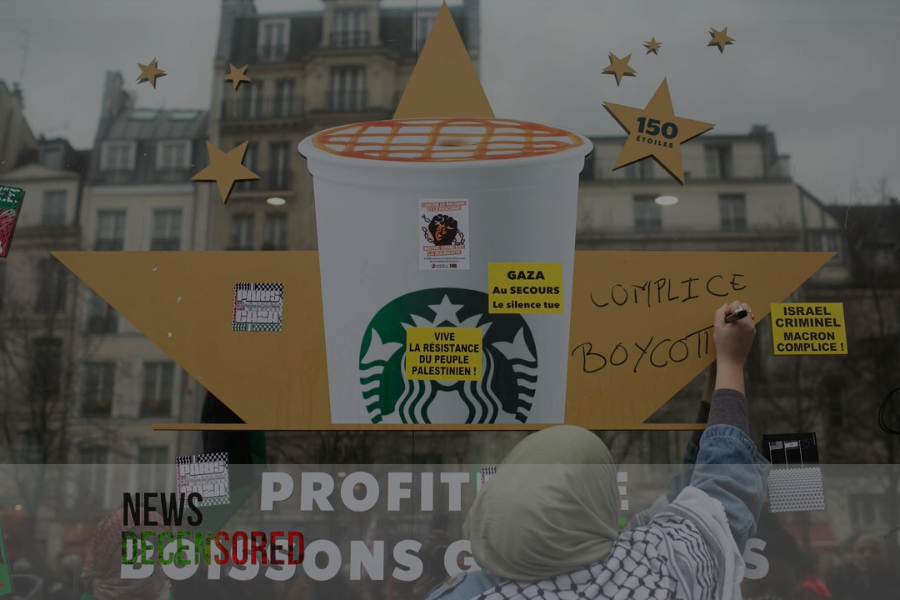McDonald’s and Starbucks have claimed that they suffered a huge setback in sales and profits due, among other things, boycotts by supporters of Palestine due to the conflict between Israel and Gaza. Boycotts have become even more common due to recent aggressions.
For the first time since 2020, McDonald’s experienced a decline in worldwide sales, and its net profit dropped by 12% from the previous year. Likewise, sales in North American stores declined to 2 percent; for the rest of the world, they were 7 percent. The company also recorded a 23 percent decline in total international profits.
The Palestinian-led BDS movement aimed at pressuring Israel to end its occupation and apartheid attacks similarly rejoiced in McDonald’s low revenues. Notably, the mass movement has endorsed the boycotts, which began shortly after October 7. The primary reason for the boycott was due to many McDonald’s Israeli franchises having supplied the recent Israeli military campaign in Gaza with meals free of charge to Israel’s forces.
During a quarterly call, Chris Kempczinski, the CEO of the fast-food behemoth, stated that the Middle East crisis hurt their earnings, especially in nations like Indonesia and Malaysia, where religion plays a significant role. Along with claiming that sales have decreased there, he also charged France with harboring a large number of Muslims.
During the company’s quarterly results call, Starbucks Chief Executive Laxman Narasimhan also mentioned in passing that boycott attempts are noted in the same markets that had McDonald’s issues. Because of what Narasimhan called “myths about Starbucks,” his management has created image-driven headwinds across the Middle East, Southeast Asia, and several regions of Europe.
Both companies have cited other factors, including fluctuation in currency exchange rates, weakening in their home market, namely China, and customers’ responses to increases in menu prices. But what about the effect of the Gaza conflict and boycotts that followed this episode cannot be overlooked?
The boycotts against McDonald’s and coffee, as marketed by Starbucks, have been most severe in Muslim-dominated countries like Pakistan and Kuwait. After boycott calls, McDonald’s Pakistan-affiliated restaurant chain remained quite indifferent. With the issue, McDonald’s was compelled to resell 225 restaurant chains in Israel in April as sales dropped tremendously in the Middle East.
Starbucks has had some extra problems worsened by unforeseen incidents: Starbucks Workers United is an organization where more than 10,000 employees support Palestine after October 7. This tweet was soon taken down but caused quite a stir before it was taken down. Starbucks also counter-sued the union for the tweet as it labeled Starbucks as supporting Palestine, which was not the reality.
These actions and responses showcase the interaction that global companies experience as politics impact consumer actions. The current circumstances have been further compounded by corporate policies, consumer society activism, and geopolitics, which have caused many problems for these brands.
The contemporary conflict in Gaza poses a significant problem for McDonald’s and Starbucks because they have to face the economic impact and reputational issues. The promulgation of BDS and the general political situation in the Gaza Strip shows that the management of affairs in the international business world and the determination of the outlooks of companies at large are very sensitive issues.















